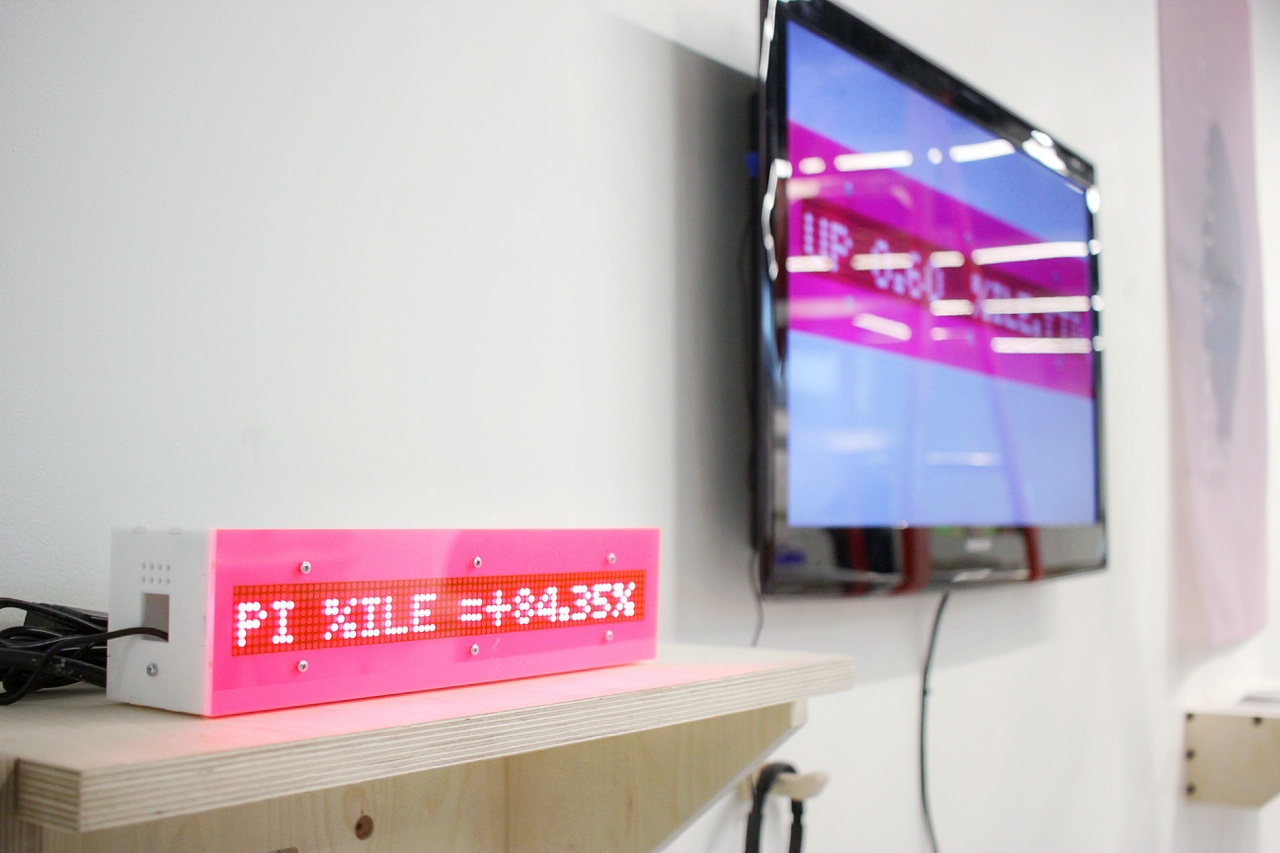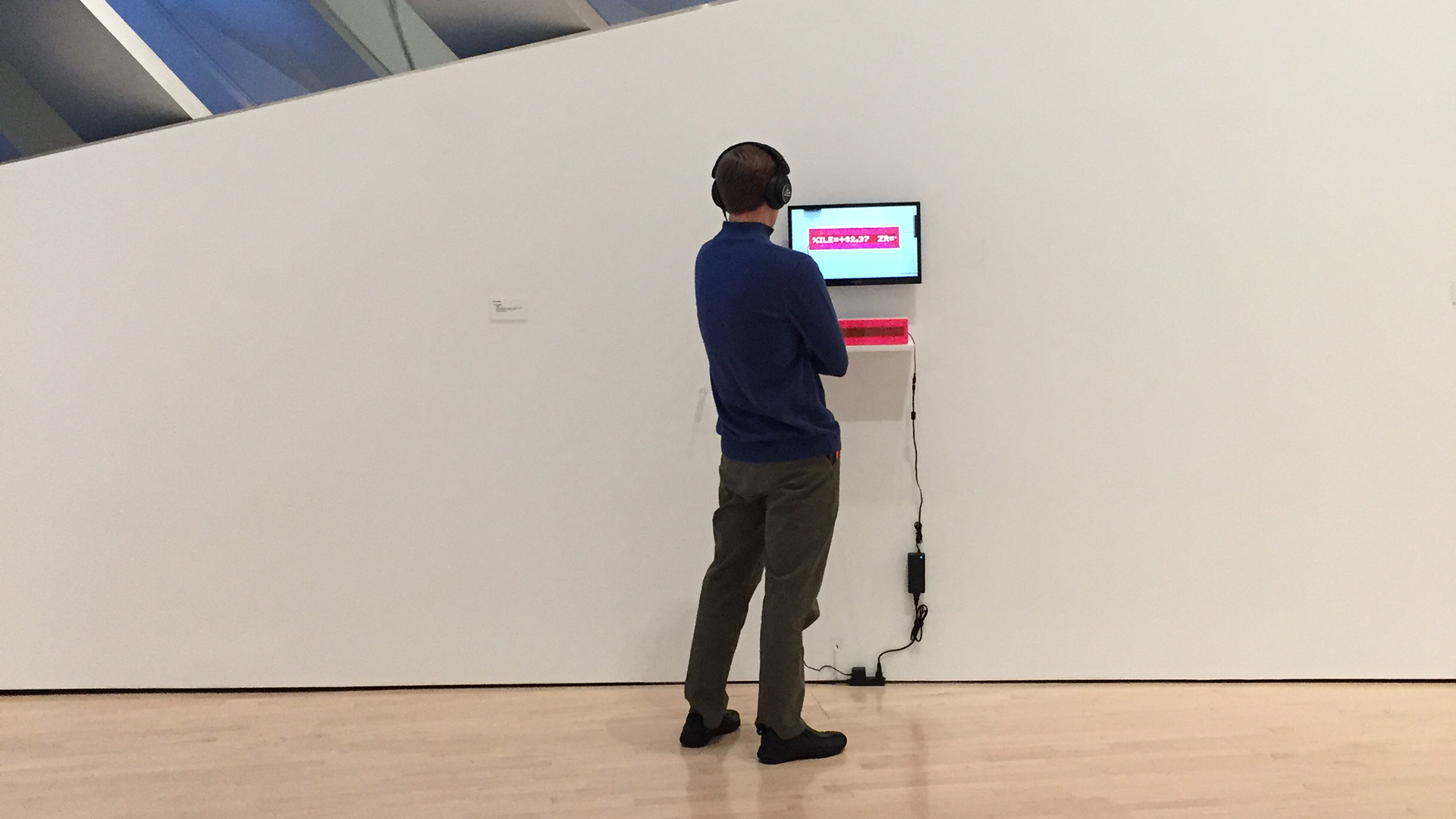/RESEARCH & CREATIVE PRACTICE
Our Program (2016)
Our Program is a speculation on the neoliberal future-present of higher education, and presents a scenario based on the dangerous trajectory on which academia—and society as a whole—is traveling. The scenario the film presents is one in which faculty members at colleges and universities are consistently and perpetually evaluated in real time through sophisticated metrics that track every aspect of their activities. The evaluative metrics are displayed, for all to see, on small “tickers” that sit outside each faculty member’s office. These metrics are, exclusively, how performance is judged, and this emphasis on the quantifiability of all aspects of everyday life points towards a larger trend in society as a whole: under the influence of companies that lead us to believe the data they gather about us is somehow objective or “real,” we understand ourselves to be nothing but data. Our collective subjectivity is one of computability. Not unlike the way in which the sharing of our FitBit data has become not only normative, but in some cases, institutionally incentivized or even mandated, the implementation of systems to quantify all aspects of faculty activity will become compulsory, and, believing themselves to be nothing but data, anyway, faculty—and society—will agree. This film presents the intellectual and cultural sensibility that emerges from this devastating concession.
 Above: the piece as installed for the DESIS exhibition at San Francisco State.
Above: the piece as installed for the DESIS exhibition at San Francisco State. Above: a visitor viewing the piece at the 2018 MSU Faculty Triennial.
Above: a visitor viewing the piece at the 2018 MSU Faculty Triennial.The film premiered in October, 2016 at Frontier: the 2016 American Institute of Graphic Arts Design Educators Conference at Montana State University. Since then, it has been exhibited at the DESIS conference at San Francisco State University and at the Michigan State University Faculty Triennial at the Eli and Edythe Broad Art Museum.